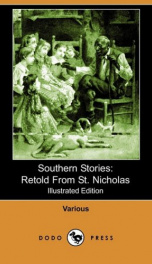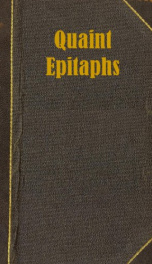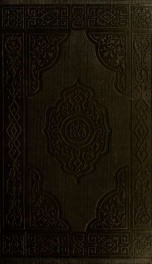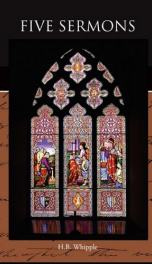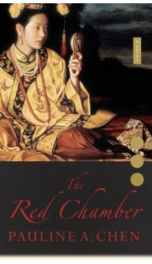Wells-Barnett Ida B.
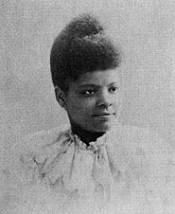
Ida Bell Wells-Barnett (July 16, 1862–March 25, 1931) was an African American journalist, newspaper editor and, with her husband, a newspaper owner[1]. An early leader in the civil rights movement, she documented the extent of lynching in the United States. She was also active in the women's rights movement and the women's suffrage movement. Ida Bell Wells was born in Holly Springs, Mississippi in 1862,[2] just before President Abraham Lincoln issued the Emancipation Proclamation. Her father James Wells was a carpenter and her mother was Elizabeth "Lizzie" Warrenton Wells. Both parents were slaves until freed at the end of the Civil War. Wells attended the Freedmen's School Shaw University, now Rust College in Holly Springs . When she was 14, both Wells' parents and her 10-month old brother, Stanley, died of yellow fever during an epidemic that swept through the South. At a meeting following the funeral, friends and relatives decided that the six remaining Wells children would be sent to various aunts and uncles. Wells was devastated by the idea and, to keep the family together, dropped out of high school and found employment as a teacher in a black school. She was determined to keep her family together, even under the difficult circumstances. Her grandmother, Peggy Wells, stayed with the children during the week while she was away to teach; without this help she would have not been able to provide for the family. In 1880, Wells moved to Memphis. There she got a summer job and when possible, she attended summer sessions at Fisk University in Nashville, whose graduates were well respected in the black community. Wells held strong political opinions and she upset many people with her views on women's rights. When she was 24, she wrote, "I will not begin at this late day by doing what my soul abhors; sugaring men, weak deceitful creatures, with flattery to retain them as escorts or to gratify a revenge." A Chesapeake, Ohio and Southwestern Railroad train conductor ordered Wells to give up her seat on the train to a white man and move to the "Jim Crow" car, which was already crowded with other passengers. At the time, the Supreme Court had just struck down, in the Civil Rights Cases (1883), the federal Civil Rights Act of 1875, which banned racial discrimination in public accommodations. Several railroad companies were able to continue legal racial segregation of their passengers. Wells protested and refused to give up her seat, 71 years before Rosa Parks. The conductor and two other men dragged Wells out of the car. When she returned to Memphis, she immediately hired an African American attorney to sue the railroad. Wells became a public figure in Memphis when she wrote a newspaper article about her treatment on the train. When her lawyer was paid off by the railroad, she hired a white attorney. She won her case on December 24, 1884 when the local circuit court granted her a $500 settlement. The railroad company appealed to the Tennessee Supreme Court, which reversed the lower court's ruling in 1887, concluding that "We think it is evident that the purpose of the defendant in error was to harass with a view to this suit, and that her persistence was not in good faith to obtain a comfortable seat for the short ride" While teaching elementary school, Wells was offered an editorial position for the Evening Star. She also wrote weekly articles for the Living Way weekly newspaper under the pen name "Iola." She slowly gained a reputation for writing about the race issue in the United States. In 1889, she became co-owner and editor of Free Speech, an anti-segregationist newspaper based at the Beale Street Baptist Church Beale Street in Memphis that published articles about racial injustice. In 1892, racial tensions rose in Memphis when a grocery store owned by three black men, Thomas Moss, Calvin McDowell, and Henry Stewart, was perceived as taking away substantial amount of business from a white-owned grocery store. One night, while Wells was out of town in Natchez, MS selling newspaper subscriptions, an attack broke out, which ended in three white men being shot and injured. Moss, McDowell, and Stewart, who were Wells' friends, were jailed after being accused of raping a white woman. A large lynch mob took the men from jail and killed them in an open field. After the lynching of her friends, Wells wrote an article in the Free Speech urging blacks to leave Memphis: "there is... only one thing left to do; save our money and leave a town which will neither protect our lives and property, nor give us a fair trial in the courts, but takes us out and murders us in cold blood when accused by white persons." Wells emphasized the public spectacle of the lynching. Some blacks did leave; others organized boycotts of white-owned businesses. Being personally threatened with violence, Wells wrote in her autobiography that she bought a pistol: "They had made me an exile and threatened my life for hinting at the truth".[3] The murder of her friends sparked Wells' interest in researching the real reason behind lynching. She began investigative journalism about lynching, positing that lynchings stemmed from economics and greed rather than the crime of raping white women. She wrote an article that implied that liasions between black men and white women were consensual. While she was away in Philadelphia, The Free Speech was destroyed on May 27, 1892, three months after the murders of Moss, Stewart, and McDowell. She went from Philadelphia to New York City. After arriving in New York, Wells took a job at the New York Age and continued her fight against lynching. Her speaking abilities were tested for the first time when she was asked to speak in front of many important African American women of the time. As she spoke about the lynchings of Moss, McDowell, and Stewart, she began to cry. Wells became the head of the Anti-Lynching Crusade, later moving to Chicago to continue her work. In 1892 she published a pamphlet Southern Horrors: Lynch Law in All Its Phases, and a A Red Record, documented research on a lynching. Having examined many accounts of lynching based on alleged "rape of white women", she concluded that Southerners concocted rape as an excuse to hide their real reason for lynchings: black economic progress, which threatened not only white Southerners' pocketbooks but also their ideas about black inferiority. In 1893, Wells and other black leaders, among them Frederick Douglass, organized a boycott of the 1893 World's Columbian Exposition in Chicago. Ida B. Wells, Frederick Douglass, Irvine Garland Penn and Ferdinand L. Barnett wrote sections of a pamphlet to be distributed during the exposition. Called Why the Colored American Is Not in the World's Columbian Exposition, it detailed the workings of Southern lynchings and a handful of other issues impinging on black Americans. She later reported to Tourgée that 2,000 copies had been distributed at the fair.[4] After the World's Fair in Chicago, Wells decided to stay in the city instead of returning to New York City and took work with the Chicago Conservator, the oldest color paper in the city. Also in 1893, Wells contemplated a libel suit against two black Memphis attorneys. She again turned to Tourgée, who had trained and practiced as a lawyer and judge, for possible free legal help. Deeply in debt, Tourgée could not afford to do the work, but he asked his friend Ferdinand L. Barnett if he could.Barnett accepted the pro bono job. Ferdinand was born in Alabama. Along with being a lawyer, he was the editor of the "Chicago Conservator" in 1878. The first time Ida met Ferdinand was at a meeting of the Ida B. Wells Club, where Ferdinand was president of the club. Ferdinand was an assistant state attorney for 14 years.[5] Two years later, he and Wells were married.[6] She set an early precedent as being one of the first married American women to keep her own last name with her husband's. This was very unusual for that time. The two had four children: Charles, Herman, Ida, and Alfreda. In a chapter of her autobiography titled "A Divided Duty", she explains the difficulty she has splitting her time between her family and her job. Wells continues to work after the birth of her first two children, traveling and bringing them along with her. Although she tried to balance the two worlds, she was not as active and, as Susan B. Anthony said, Wells "was distracted". Her work focused in Chicago and local groups such as the Ida B. Wells Club and the Chicago Women's Club. She received much support from other prolific social activists and her fellow clubwomen. In his response to her article in the Free Speech, Frederick Douglass expressed approval of Wells-Barnett's literature: "You have done your people and mine a service…What a revelation of existing conditions your writing has been for me" (Freedman, 1994). Wells- Barnett took her campaign into Europe with the help of many supporters. "People all of the country raised several thousand dollars to enable her to travel abroad" (Feldman, 1964). "A few months after founding the Women’s League, the Women’s Loyal Union, under the leadership of Victoria Matthews, united 70 women from Brooklyn and Manhattan in support of Ida B. Wells and her anti-lynching crusade, helping her to finance her 1892 speaking tour of the United States and the British Isles " (Hewitt & Lebsock, 1993, p. 247). One club, the Women’s Era Club, based in Boston, wrote an open letter of support for Wells and her work (Bressey, 2008). "It was given wide publicity in England, and Wells believed it gave greater weight to the arguments she had been making against lynching" (2008). In 1893, Wells went to Great Britain at the behest of British Quaker Catherine Impey. An opponent of imperialism and proponent of racial equality, Impey wanted to be sure that the British public was informed about the problem of lynching. Wells went to rally a new reform moral crusade to the English. Although Wells and her speeches, complete with at least one grisly photograph showing grinning white children posing beneath a suspended corpse, caused a stir among doubtful audiences. Her intentions were to raise money and expose the United States, however Wells was paid so little that she could barely pay her travel expenses.[7]
do you like this author?
What readers are saying
What do you think? Write your own comment on this book!
write a commentWhat readers are saying
What do you think? Write your own comment on this author!
write a commentBook list
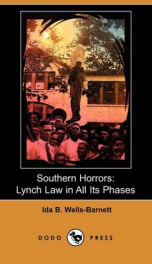
Southern Horrors
Series:
Unknown
Year:
Unknown
Raiting:
3/5
Ida Bell Wells, later Wells-Barnett (1862-1931), was an African American civil rights advocate and an early women's rights advocate active in the Woman Suffrage Movement. Fearless in her opposition to lynchings, Wells documented hundreds of these atrocities. Wells became a public figure in Memphis when, in 1884, she led a campaign against racial segregation on the local railway. In 1889, she became co-owner and editor of Free Speech, an anti-segregationist newspaper based in Memphis on Beale Street. She also published in 1892 her famous pamphlet Southern Horrors: Lynch Law in All its Phases. This pamphlet, along with her 1895 The Red Record: Tabulated Statistics and Alleged Causes of Lynching in the United States, documented her research on and campaign against lynching. In 1892, Wells went to Great Britain at the behest of British Quaker Catherine Impey. An opponent of imperialism and proponent of racial equality, Impey wanted to be sure that the British public was informed about the problem of lynching. After her retirement, Wells wrote her autobiography, Crusade for Justice (1928). Her other works include Mob Rule in New Orleans (1900).
Show more
add to favoritesadd In favorites

The Red Record
Series:
Unknown
Year:
Unknown
Raiting:
3.5/5
Tabulated Statistics and Alleged Causes of Lynching in the United States
Show more
add to favoritesadd In favorites
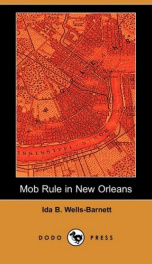
Mob Rule in New Orleans
Series:
Unknown
Year:
Unknown
Raiting:
3.5/5
Ida Bell Wells, later Wells-Barnett (1862-1931), was an African American civil rights advocate and an early women's rights advocate active in the Woman Suffrage Movement. Fearless in her opposition to lynchings, Wells documented hundreds of these atrocities. Wells became a public figure in Memphis when, in 1884, she led a campaign against racial segregation on the local railway. In 1889, she became co-owner and editor of Free Speech, an anti-segregationist newspaper based in Memphis on Beale Street. She also published in 1892 her famous pamphlet Southern Horrors: Lynch Law in All its Phases. This pamphlet, along with her 1895 The Red Record: Tabulated Statistics and Alleged Causes of Lynching in the United States, documented her research on and campaign against lynching. In 1892, Wells went to Great Britain at the behest of British Quaker Catherine Impey. An opponent of imperialism and proponent of racial equality, Impey wanted to be sure that the British public was informed about the problem of lynching. After her retirement, Wells wrote her autobiography, Crusade for Justice (1928). Her other works include Mob Rule in New Orleans (1900).
Show more
add to favoritesadd In favorites
Book list

Southern Horrors
Series:
Unknown
Year:
Unknown
Raiting:
3/5
Ida Bell Wells, later Wells-Barnett (1862-1931), was an African American civil rights advocate and an early women's rights advocate active in the Woman Suffrage Movement. Fearless in her opposition to lynchings, Wells documented hundreds of these atrocities. Wells became a public figure in Memphis when, in 1884, she led a campaign against racial segregation on the local railway. In 1889, she became co-owner and editor of Free Speech, an anti-segregationist newspaper based in Memphis on Beale Street. She also published in 1892 her famous pamphlet Southern Horrors: Lynch Law in All its Phases. This pamphlet, along with her 1895 The Red Record: Tabulated Statistics and Alleged Causes of Lynching in the United States, documented her research on and campaign against lynching. In 1892, Wells went to Great Britain at the behest of British Quaker Catherine Impey. An opponent of imperialism and proponent of racial equality, Impey wanted to be sure that the British public was informed about the problem of lynching. After her retirement, Wells wrote her autobiography, Crusade for Justice (1928). Her other works include Mob Rule in New Orleans (1900).
Show more
add to favoritesadd In favorites

The Red Record
Series:
Unknown
Year:
Unknown
Raiting:
3.5/5
Tabulated Statistics and Alleged Causes of Lynching in the United States
Show more
add to favoritesadd In favorites

Mob Rule in New Orleans
Series:
Unknown
Year:
Unknown
Raiting:
3.5/5
Ida Bell Wells, later Wells-Barnett (1862-1931), was an African American civil rights advocate and an early women's rights advocate active in the Woman Suffrage Movement. Fearless in her opposition to lynchings, Wells documented hundreds of these atrocities. Wells became a public figure in Memphis when, in 1884, she led a campaign against racial segregation on the local railway. In 1889, she became co-owner and editor of Free Speech, an anti-segregationist newspaper based in Memphis on Beale Street. She also published in 1892 her famous pamphlet Southern Horrors: Lynch Law in All its Phases. This pamphlet, along with her 1895 The Red Record: Tabulated Statistics and Alleged Causes of Lynching in the United States, documented her research on and campaign against lynching. In 1892, Wells went to Great Britain at the behest of British Quaker Catherine Impey. An opponent of imperialism and proponent of racial equality, Impey wanted to be sure that the British public was informed about the problem of lynching. After her retirement, Wells wrote her autobiography, Crusade for Justice (1928). Her other works include Mob Rule in New Orleans (1900).
Show more
add to favoritesadd In favorites
What readers are saying
What do you think? Write your own comment on this author!
write a commentGenre
if you like Wells-Barnett Ida B. try:
readers also enjoyed
What readers are saying
What do you think? Write your own comment on this author!
write a commentGenre
if you like Wells-Barnett Ida B. try:
readers also enjoyed
Do you want to read a book that interests you? It’s EASY!
Create an account and send a request for reading to other users on the Webpage of the book!


